INTERNS & SCHOLARS
Internships
MEP Graduate Student Internships in the Education Sciences are established through a partnership with UW–Madison’s Interdisciplinary Training Program in Education Sciences. Supervised by MEP Co-Directors, graduate student researchers provide the district with deeper contextual information topically aligned with current MEP research and of interest to district leadership. Internships also serve to satisfy program requirements of the scholars training program. Research produced by the graduate scholars is presented to the MEP Directors, Steering Committee and District leadership.
In 2023-24, we cemented many of these practices into a formalized internship program. The brief describes MEP’s motivation in facilitating and supporting graduate student internships, how the internship program works, and what we learned from the 2023-24 school year.
2024–2025

Anne Bowen, graduate student in school psychology, is conducting a study to examine the implementation of mental health services in the MMSD school-based health center. Anne is interested in supporting equitable access to school-based health services in the district.”

Carly Oddliefson, a graduate student in school psychology, is conducting a qualitative study to better understand how school-based teams interpret and use social, emotional, and behavioral (SEB) screening data. Through focus groups with school-based professionals, this study explores how teams make sense of multiple data sources, use professional judgment, and integrate SEB screening into decision-making. The findings will inform the development of professional learning opportunities that reflect current practices and help schools use SEB screening data effectively.
Ellen Hsieh

Jennifer Murray is working with MMSD to help pilot test and study a fraction tutoring intervention for middle school students. She helps review curriculum for the project, train tutors, and observe tutors to provide feedback throughout the school year. She will also assist with future analyses and presentations. This project aims to see if regular fraction tutoring with trained and monitored tutors can improve outcomes in mathematics for middle school students.
2023–2024
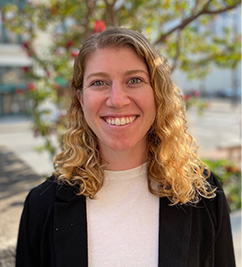
Becca Bier (ITP, MEP 4K project), graduate student in sociology.
Since 2021, Becca has collaborated with MMSD's Department of Early Learning and Research and Innovation on an evaluation of the district's full-day 4-year-old Kindergarten (4K) program. The two-year evaluation assesses student skill gains in early literacy, numeracy, and executive function in full-day classrooms relative to half-day classrooms. Becca has also worked with the district on a project exploring peer networks in 4K classrooms.
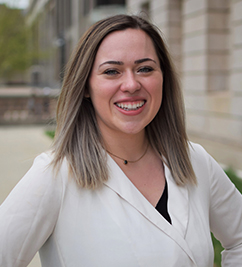
Kat Swerbenski, (ITP, working with R&I climate team) graduate student in psychology.
Kat works with the Madison Metropolitan School District (MMSD) to evaluate how school belonging and climate are being assessed within the district. She has also been interviewing students about what school belonging means to them. This project hopes to help the district gain a better understanding of what facilitates a sense of belonging among their students.
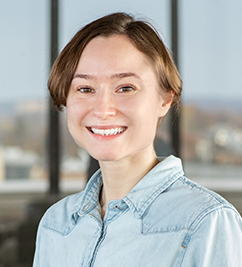
Tory Jay, (ITP, working with Patti), graduate student in psychology.
Tori is observing classroom lessons, interviewing teachers, and reviewing curriculum to understand the barriers to and affordances for supporting conceptual knowledge of mathematics in MMSD middle school algebra and algebra-readiness classes. This work will help the district identify curricular supports and professional development opportunities to support teachers in promoting student conceptual knowledge in the classroom.

Tory Ash, (ITP, working with Lachele), graduate student in psychology.
Tory Ash is currently working as an intern in the department of professional learning within the Madison Metropolitan School District. She is particularly interested in the evaluation of equity-focused initiatives within the district.

Victor Feagins, (ITP, new project), graduate student in quantitative methods.
Victor is currently working with the Research, Assessment, and Improvement Department to improve dashboards and streamline reporting to the board of education (BOE).

Alex Latham, (ITP, new project), graduate student in school psychology.
Alex is currently working with the Research, Assessment, and Improvement Department to evaluate early screeners for risk of literacy challenges. Specifically, we are investigating how accurately brief Spanish and English reading assessments can predict important outcomes like Forward Exam Performance. Accurately predicting outcomes like this as early as possible can help identify students who would benefit from some additional instruction before significant challenges emerge.
Graduate Interns
2022–2023
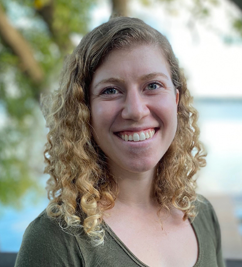
Since 2021, Rebecca Bier, graduate student in sociology, is conducting a second year of the evaluation of MMSD's full-day 4K program under the direction of Eric Grodsky and in partnership with the Department of Early Learning. The evaluation follows some students into 5K and continues to understand how full-day 4K affects student learning in literacy, math, executive functioning, and socio-emotional skills, relative to half-day 4K.

Tory Jay, graduate student in psychology, is observing classroom lessons, interviewing teachers, and reviewing curriculum to understand the barriers to and affordances for supporting conceptual knowledge of mathematics in MMSD middle school algebra and algebra-readiness classes. This work will help the district identify curricular supports and professional development opportunities to support teachers in promoting student conceptual knowledge in the classroom.

Julia Porter, graduate student in school psychology, is conducting a study to examine the feasibility of implementing a school engagement and school dropout intervention program with 9th grade students at East High School. This work aligns with the district’s prioritization of 9th grade student engagement and will help the district continue to support 9th grade students at risk for school dropout.

Kat Swerbenski, graduate student in psychology, is conducting an evaluation of the psychometric properties of the current student climate survey used in MMSD. Additionally, she is conducting qualitative interviews with MMSD students on what school belonging means to them. This work will help the district better understand how best to assess students' perceptions of school climate and feelings of school belonging.
2019–2020
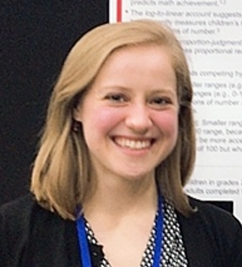
Alex Viegut, graduate student in educational psychology, is conducting a survey to investigate elementary teacher’s perspectives on teaching math with multiple strategies and visual models. MMSD recently adopted a new K-5 math curriculum, and this work will help the district continue to support math teaching in elementary schools.
2018–2019
Garret Hall, who did an observational study on how teachers build early numeracy skills last year, examined the presence of relationships between the implementation of the Bridges math curriculum and student math achievement in grades 3 through 5 with additional focus on math outcomes among English language learners.
2017–2018
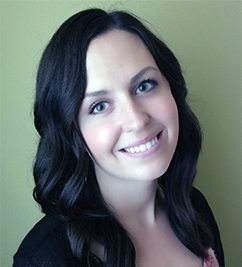
Elizabeth Premo, graduate student in social work, developed a review and comparison of literature assessments for 4K students. Her research topic was designed in response to the district’s need for an overview of options for 4K literature assessments.
Research Memo: A Review of Select Assessments to Measure School Readiness at the Start of Kindergarten
Garret Hall, graduate student in educational psychology, conducted a year-long observational study looking at how 4K teachers build early numeracy skills, with particular attention to English language learners.
Undergraduate Interns
Undergraduate Research Scholars apply for the MEP internship opportunity through the College of Letters & Science, and are mentored by MEP Co-Director, Eric Grodsky. Through their internship, the scholars conduct research thematically aligned with MEP Directed work, giving them the opportunity to have a hands-on experience investigating pressing problems of policy and practice in public education. At the end of their internship, URS students present their findings to the MEP Directors and Steering Committee as well as at an annual Symposium hosted by the University.
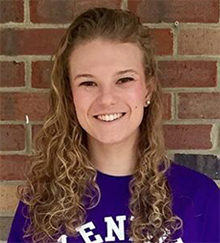
Emmie Mirus worked on two qualitative studies, concerning ways to mitigate the impact of socioeconomic status on academic achievement. She assisted in translating, transcribing, coding, and analyzing data.
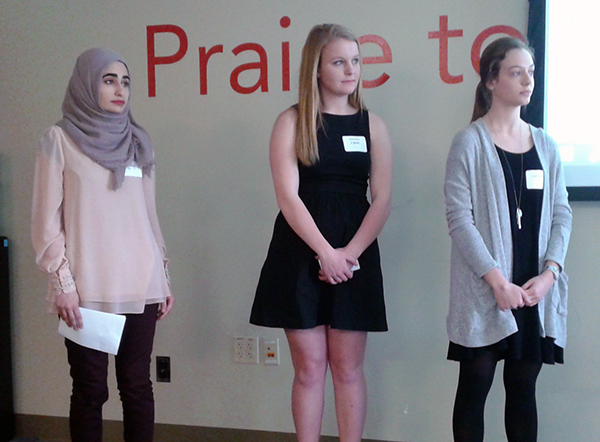
The 2016–2017 cohort of Undergraduate Research Scholars, Noor Hammad, Samantha Chase, and Kelly Giuliano, all students in Sociology, focused their research on programmatic elements of four-year-old kindergarten. Their research provided valuable information regarding school readiness and effectiveness of previous 4 year-old Kindergarten curriculum and assessments.
- Hammad conducted an observational study of 4K ELL student interactions with teachers and peers.
- Chase compared three different 4K assessments - PALS, IGDI and GOLD.
- Giuliano compared four curricular programs for 4K classrooms.
Communications Interns
MEP Communications Internship assists the MEP team with the development and execution of an extensive communications and outreach plan to disseminate research findings to targeted audiences and the general public. The Intern gains hands-on experience with communicating across multiple audiences, developing web content, writing press releases and blog posts, and creating digital communication tools.
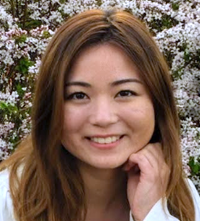
Lisa Heverly served as MEP’s communication intern for 2019–2020, a student studying Journalism with a concentration in Strategic Communications. Lisa assisted with the production of press releases, monthly newsletters and social media content while keeping the MEP website up-to-date.
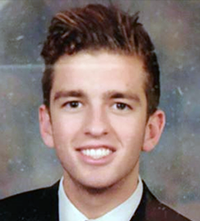
Our Communications Intern in 2017–2018 was Jonathan Mills, a student of the UW-Madison School of Journalism and Mass Communications with a focus in Journalistic Reporting and Broadcasting. Jonathan contributed to the development of a long-term communications strategy, assisted with the release of MEP research briefs, assisted with the development and implementation of MEP special events, and managed our social media presence.
If you are interested in learning more about opportunities to work with MEP please contact the Project Manager, Amanda Kruger at amkruger2@wisc.edu.
